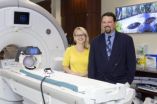(Press-News.org) BLOOMINGTON, Ind. -- An Indiana University study has found that social class can account for differences in how parents coach their children to manage classroom challenges. Such differences can affect a child's education by reproducing inequalities in the classroom.
"Parents have different beliefs on how to deal with challenges in the classroom," said Jessica McCrory Calarco, assistant professor in IU Bloomington's Department of Sociology in the College of Arts and Sciences. "Middle-class parents tell their children to reach out to the teacher and ask questions. Working-class parents see asking for help as disrespectful to teachers, so they teach their children to work out problems themselves."
Calarco studied four classrooms in a public school from their time in third grade through fifth grade. To isolate differences based on social class alone, she only collected interviews from Caucasian students and families, in addition to their teachers.
In general, middle-class children get more attention from their instructors because they actively seek it, while working-class children tend to stay silent through any of their educational struggles so as not to be a bother. Calarco said the differences in how parents teach their children to deal with problems in school stem primarily from parents' level of involvement in their children's schooling.
"Middle-class parents are more plugged into the school, so they know what teachers expect in the classroom. Working-class parents don't think it's their place to be involved, so they tend to be less aware of what teachers expect today," Calarco said.
With the widening gaps in educational outcomes between social classes, Calarco suggested that this study could help schools become more aware of these differences and make moves to reduce the inequalities.
"Schools can step in to alleviate these differences in kids' willingness to seek help," Calarco said. "Teachers need to be aware of social class differences that students are bringing with them into the classroom. They need to be more active in seeking out struggling students, because if we leave it up to the kids, they may not seek it themselves."
INFORMATION:
Calarco's study, "Coached for the Classroom: Parents' Cultural Transmission and Children's Reproduction of Educational Inequalities" will be published in the October issue of the American Sociological Review.
For a copy of the paper or to speak with Calarco, contact her at jcalarco@indiana.edu or 484-431-8316, or contact Milana Katic at mkatic@iu.edu or 219-789-6320.
IU study: Social class makes a difference in how children tackle classroom problems
2014-08-27
ELSE PRESS RELEASES FROM THIS DATE:
Wolves susceptible to yawn contagion
2014-08-27
Wolves may be susceptible to yawn contagion, according to a study published August 27, 2014 in the open-access journal PLOS ONE by Teresa Romero from The University of Tokyo, Japan, and colleagues.
Researchers suggest that contagious yawning may be linked to human capacity for empathy, but little evidence apart from studies on primates, exists that links contagious yawning to empathy in other animals. Recently, researchers have documented domestic dogs demonstrating contagious yawning when exposed to human yawns in a scientific setting, but it is unclear whether this ...
Stone-tipped spears more damaging than sharpened wooden spears
2014-08-27
Experimental comparison may show that stone-tipped spears do not penetrate as deep, but may still cause more damage, than sharpened wooden spears, according to a study published August 27, 2014 in the open-access journal PLOS ONE by Jayne Wilkins from Arizona State University and colleagues.
The creation of stone-tipped weapons (wooden shaft + binding materials + stone point) by our ancestors ~500,000 years ago points to the development of new cognitive and social learning at the time. The development may have provided an advantage over simpler hunting methods, such as ...
Bronze Age wine cellar found
2014-08-27
A Bronze Age palace excavation reveals an ancient wine cellar, according to a study published August 27, 2014 in the open-access journal PLOS ONE by Andrew Koh from Brandeis University and colleagues.
Wine production, distribution, and consumption are thought to have played a role in the lives of those living in the Mediterranean and Near East during the Middle Bronze Age (1900-1600 BC), but little archaeological evidence about Bronze Age wine is available to support art and documentation about the role wine played during this period. During a 2013 excavation of the Middle ...
Xenon exposure shown to erase traumatic memories
2014-08-27
Belmont, MA — McLean Hospital researchers are reporting that xenon gas, used in humans for anesthesia and diagnostic imaging, has the potential to be a treatment for post-traumatic stress disorder (PTSD) and other memory-related disorders.
"In our study, we found that xenon gas has the capability of reducing memories of traumatic events," said Edward G. Meloni, PhD, assistant psychologist at McLean Hospital and an assistant professor of Psychiatry at Harvard Medical School. "It's an exciting breakthrough, as this has the potential to be a new treatment for individuals ...
New drug promises relief for inflammatory pain, Stanford scientists say
2014-08-27
Pain from inflammation sidelines thousands of Americans each year. Many face a tough choice: deal with the pain, take a potentially addictive opioid or use a nonsteroidal anti-inflammatory drug that may increase risk for cardiovascular disease or gastrointestinal bleeding.
Now, researchers at the Stanford University School of Medicine have discovered a compound thought to be nonaddictive and safe for the heart and gastrointestinal system that reduces inflammatory pain in mice and rats. They call the compound Alda-1.
"Finding a new pain medication is important because ...
Stone-tipped spears lethal, may indicate early cognitive and social skills
2014-08-27
Attaching a stone tip on to a wooden spear shaft was a significant innovation for early modern humans living around 500,000 years ago. However, it was also a costly behavior in terms of time and effort to collect, prepare and assemble the spear. Stone tips break more frequently than wooden spears, requiring more frequent replacement and upkeep, and the fragility of a broken point could necessitate multiple thrusts to an angry animal. So, why did early hunters begin to use stone-tipped spears?
To learn if there was a "wounding" advantage between using a wooden spear or ...
Orphaned children can do just as well in institutions
2014-08-27
DURHAM, N.C. -- The removal of institutions or group homes will not lead to better child well-being and could even worsen outcomes for some orphaned and separated children, according to new findings from a three-year study across five low- and middle-income countries.
Children in institutions are as healthy and, in some ways, healthier than those in family-based care, according to the study, which was led by Kathryn Whetten, a Duke professor of public policy and director of the Center for Health Policy and Inequalities Research (CHPIR).
In the largest and most geographically ...
Self-deceived individuals deceive others better
2014-08-27
Over confident people can fool others into believing they are more talented than they actually are, a study has found.
These 'self-deceived' individuals could be more likely to get promotions and reach influential positions in banks and other organisations. And these people are more likely to overestimate other people's abilities and take greater risks, possibly creating problems for their organisations.
The study by researchers from Newcastle University and the University of Exeter, has also found that those who are under confident in their own abilities are viewed ...
Brain networks 'hyper-connected' in young adults who had depression
2014-08-27
Depression may be better predicted and understood now that University of Illinois at Chicago researchers have discovered that young adults who previously experienced the mental illness have hyper-connected emotional and cognitive networks in the brain.
UIC researchers used functional magnetic resonance imaging to examine the brain connectivity of young adults ages 18 to 23 while they were in a resting state. Thirty unmedicated young adults who had previously experienced depression and 23 healthy controls were used in the study, which has been published online in the journal ...
Malaria symptoms fade on repeat infections due to loss of immune cells, UCSF-led team says
2014-08-27
Children who repeatedly become infected with malaria often experience no clinical symptoms with these subsequent infections, and a team led by UC San Francisco researchers has discovered that this might be due at least in part to a depletion of specific types of immune cells.
Working in Uganda, one of the most malaria-plagued nations in Africa and one in which individuals are repeatedly exposed to the malaria parasite, UCSF scientists found that a depletion of immune cells known as gamma delta T cells diminishes inflammatory responses in infected children — responses ...




